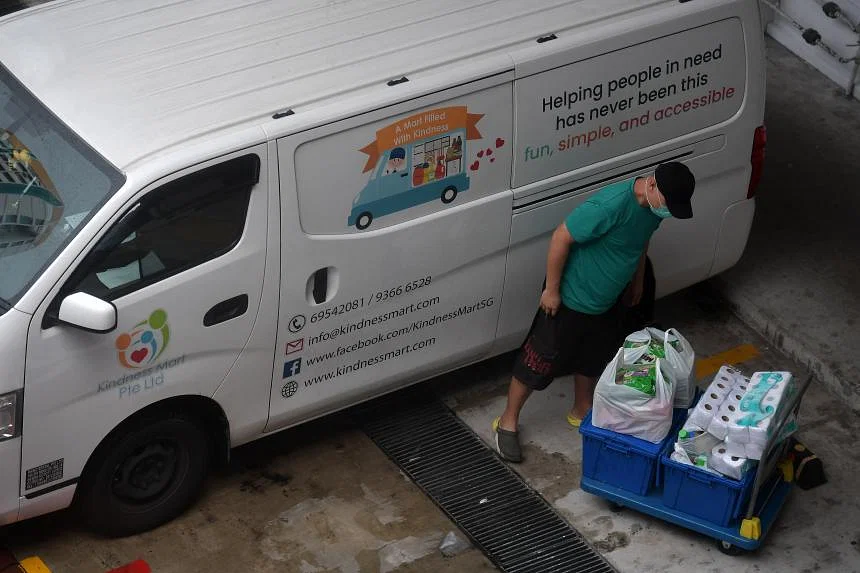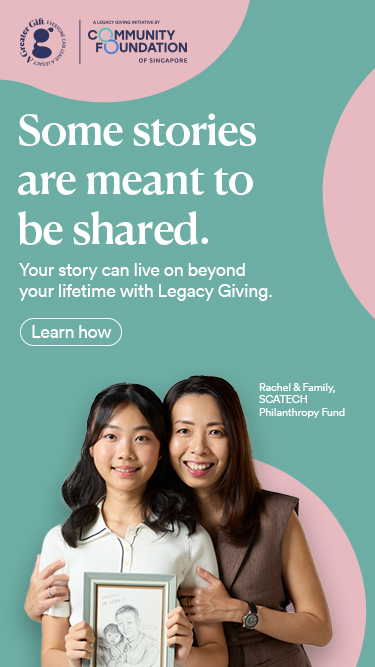Budget 2023: Govt to extend 250% tax deduction for donations until 2026


Singapore will extend its tax deduction rate for donations for another three years until the end of 2026, as part of efforts to foster and sustain a spirit of giving.
Deputy Prime Minister and Finance Minister Lawrence Wong said on Tuesday that this will be done although the tax deduction for donations at 250 per cent is
already very high compared with other jurisdictions.
The Government will review thereafter what would be a more sustainable level of tax deduction for the longer term, he said.
He added that Singaporeans have donated generously. Despite the economic downturn due to Covid-19, the donations received through Giving.sg were about three
times higher than pre-pandemic levels, and have remained around $100 million in the last three years.
Giving.sg is a one-stop national giving platform by the National Volunteer and Philanthropy Centre, which hosts more than 600 registered non-profit groups in
Singapore.
Another way to continue to foster the spirit of giving that Mr Wong highlighted is through tax-deductible donations to Institutions of a Public Character (IPCs) and
eligible institutions.
The Government will also enhance the existing Business and IPC Partnership Scheme into a broader Corporate Volunteer Scheme, which will be extended for three
more years to Dec 31, 2026.
From January 1, 2024, the scope of qualifying volunteering activities will be expanded to include activities which are conducted virtually or outside of the IPCs’
premises.
The Government will also double the qualifying per-IPC cap to $100,000 per calendar year, to facilitate deeper partnerships between businesses and IPCs, he said.
It will also continue to strengthen the capabilities and support the services of charities, social service agencies (SSAs) and community organisations.
“(They) play critical roles in looking after the vulnerable, and mobilising Singaporeans to support those who are in greater need,” said Mr Wong.
Also announced was a $1 billion top-up of the Community Silver Trust, which provides dollar-for-dollar donation matching grants for SSAs that provide community care services for seniors.
This will enable the SSAs to enhance the quality and accessibility of community care, especially for the more vulnerable seniors, he said.
Charities and SSAs can also continue to tap the Charities Capability Fund (CCF) and the Community Capability Trust (CCT) to drive innovation and transform their
operations.
The CCF aims to enhance productivity, operational efficiency, governance and management capabilities of charities and IPCs. The CCT is a platform to support
capability and capacity-building schemes and initiatives for the social service sector.
The Government will also top up $10 million towards self-help groups over the next three years.
Said Mr Wong: “They are doing good work on the ground, and are well placed to provide assistance to members of their respective communities who need help.”
He also cited the example of Ms Emily Yap, a registered nurse at Alexandra Hospital, as someone who still volunteered on her days off for the wider community
despite her heavy workload during the pandemic.
Ms Yap started a ground-up initiative with other like-minded people to deliver grocery packs to the elderly and lower-income families in the community.
She also used her own Community Development Council vouchers to buy kueh bangkit (coconut cookies) for vulnerable families during the Chinese New Year period.
“This is what the Singapore spirit is about,” said Mr Wong.
“We have seen it in action, and experienced it in abundance over the last three years – how we are responsible for one another, keep an eye out for our fellow citizens, and always band together as a team.”
This article was originally published in The Straits Times here. Source: The Straits Times © SPH Media Limited. Permission required for reproduction.
Singapore will extend its tax deduction rate for donations for another three years until the end of 2026, as part of efforts to foster and sustain a spirit of giving.
Deputy Prime Minister and Finance Minister Lawrence Wong said on Tuesday that this will be done although the tax deduction for donations at 250 per cent is
already very high compared with other jurisdictions.
The Government will review thereafter what would be a more sustainable level of tax deduction for the longer term, he said.
He added that Singaporeans have donated generously. Despite the economic downturn due to Covid-19, the donations received through Giving.sg were about three
times higher than pre-pandemic levels, and have remained around $100 million in the last three years.
Giving.sg is a one-stop national giving platform by the National Volunteer and Philanthropy Centre, which hosts more than 600 registered non-profit groups in
Singapore.
Another way to continue to foster the spirit of giving that Mr Wong highlighted is through tax-deductible donations to Institutions of a Public Character (IPCs) and
eligible institutions.
The Government will also enhance the existing Business and IPC Partnership Scheme into a broader Corporate Volunteer Scheme, which will be extended for three
more years to Dec 31, 2026.
From January 1, 2024, the scope of qualifying volunteering activities will be expanded to include activities which are conducted virtually or outside of the IPCs’
premises.
The Government will also double the qualifying per-IPC cap to $100,000 per calendar year, to facilitate deeper partnerships between businesses and IPCs, he said.
It will also continue to strengthen the capabilities and support the services of charities, social service agencies (SSAs) and community organisations.
“(They) play critical roles in looking after the vulnerable, and mobilising Singaporeans to support those who are in greater need,” said Mr Wong.
Also announced was a $1 billion top-up of the Community Silver Trust, which provides dollar-for-dollar donation matching grants for SSAs that provide community care services for seniors.
This will enable the SSAs to enhance the quality and accessibility of community care, especially for the more vulnerable seniors, he said.
Charities and SSAs can also continue to tap the Charities Capability Fund (CCF) and the Community Capability Trust (CCT) to drive innovation and transform their
operations.
The CCF aims to enhance productivity, operational efficiency, governance and management capabilities of charities and IPCs. The CCT is a platform to support
capability and capacity-building schemes and initiatives for the social service sector.
The Government will also top up $10 million towards self-help groups over the next three years.
Said Mr Wong: “They are doing good work on the ground, and are well placed to provide assistance to members of their respective communities who need help.”
He also cited the example of Ms Emily Yap, a registered nurse at Alexandra Hospital, as someone who still volunteered on her days off for the wider community
despite her heavy workload during the pandemic.
Ms Yap started a ground-up initiative with other like-minded people to deliver grocery packs to the elderly and lower-income families in the community.
She also used her own Community Development Council vouchers to buy kueh bangkit (coconut cookies) for vulnerable families during the Chinese New Year period.
“This is what the Singapore spirit is about,” said Mr Wong.
“We have seen it in action, and experienced it in abundance over the last three years – how we are responsible for one another, keep an eye out for our fellow citizens, and always band together as a team.”
This article was originally published in The Straits Times here. Source: The Straits Times © SPH Media Limited. Permission required for reproduction.
- Related Topics For You: DONOR STORIES, NEWS

.jpg)


